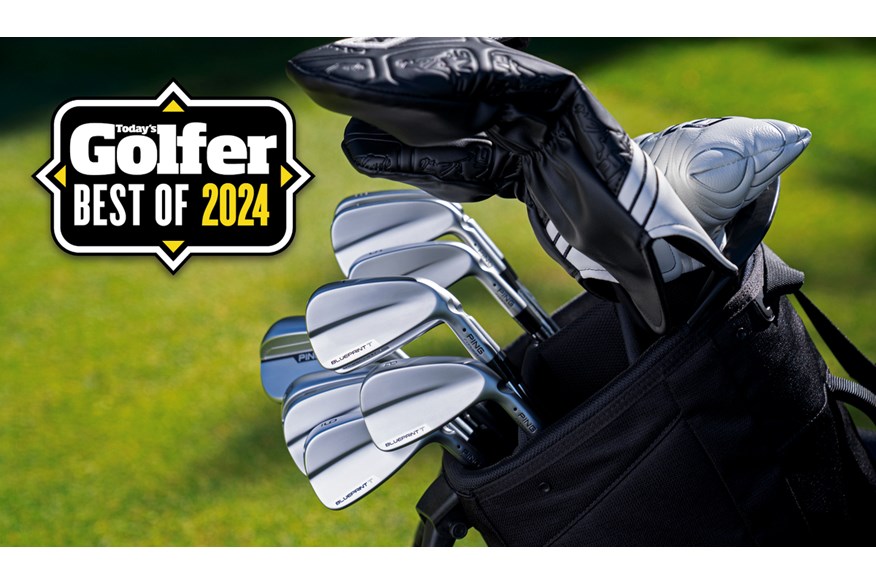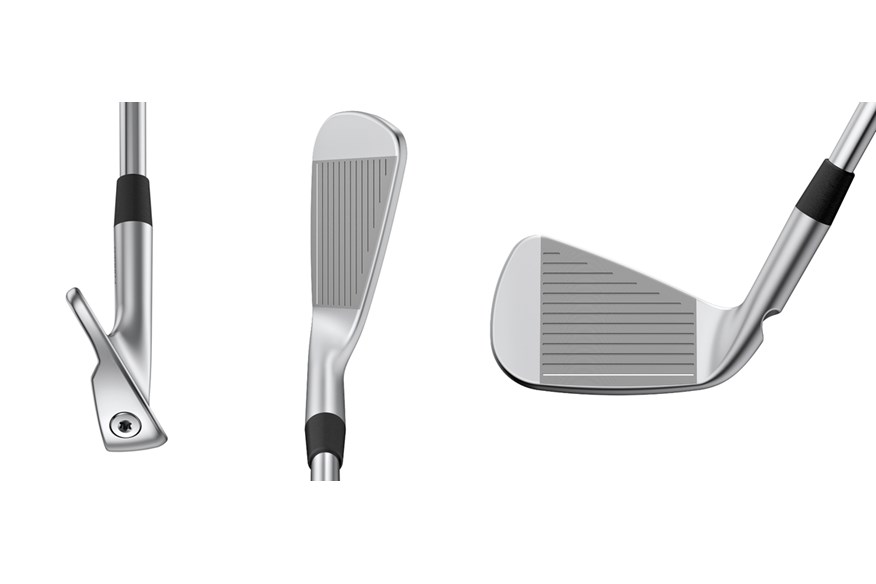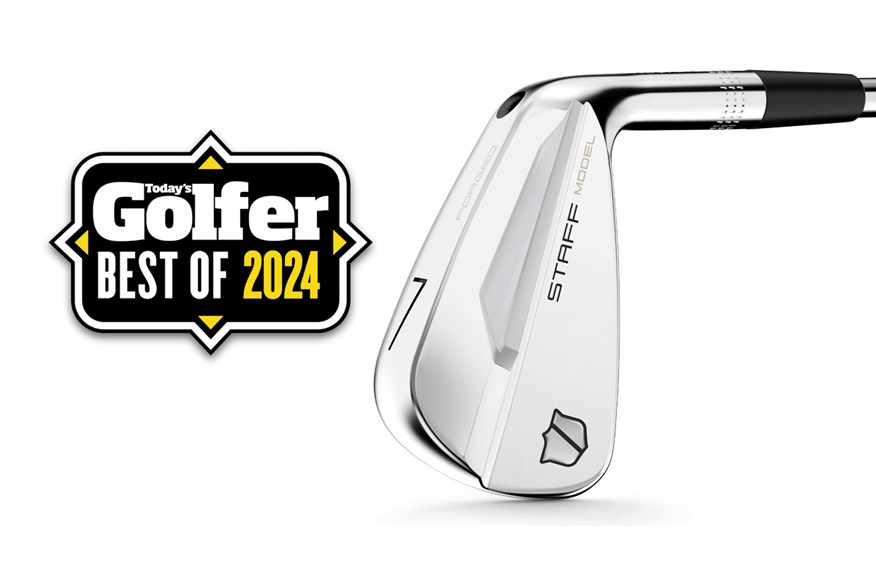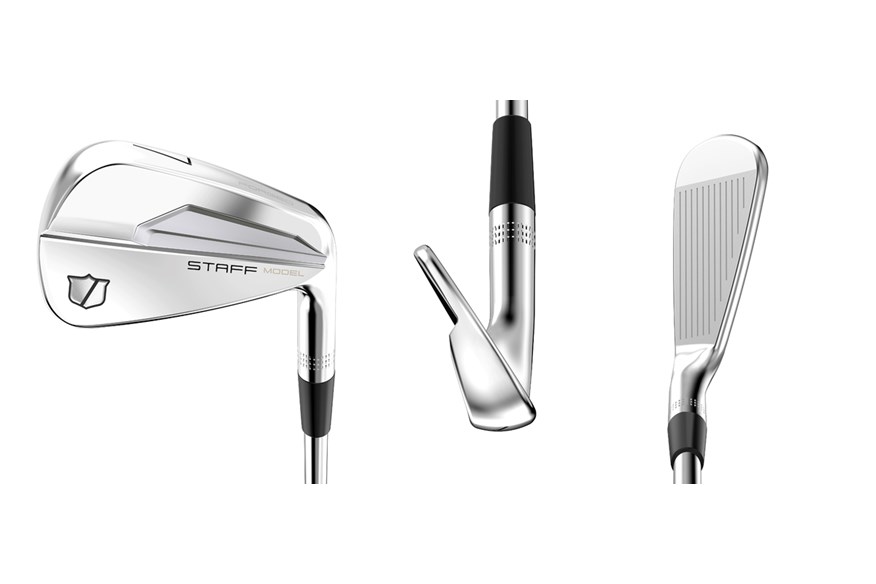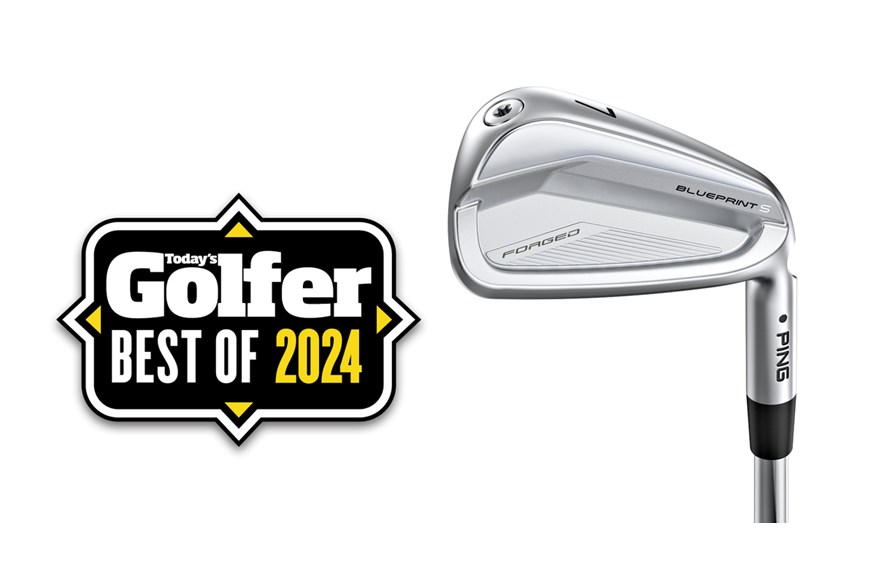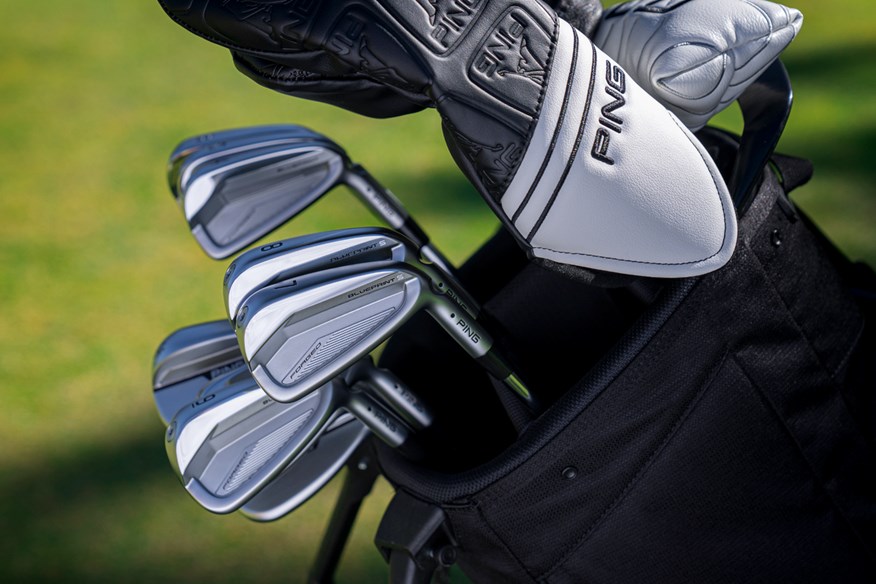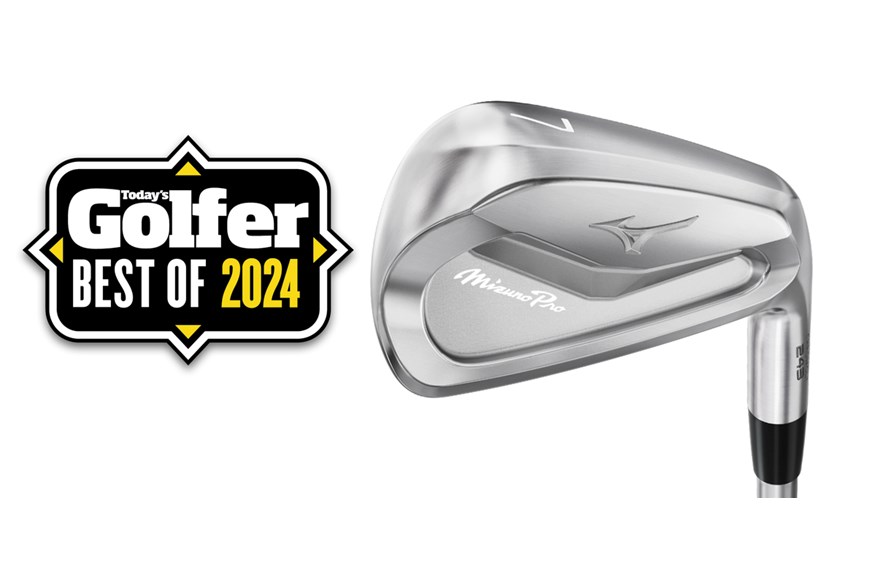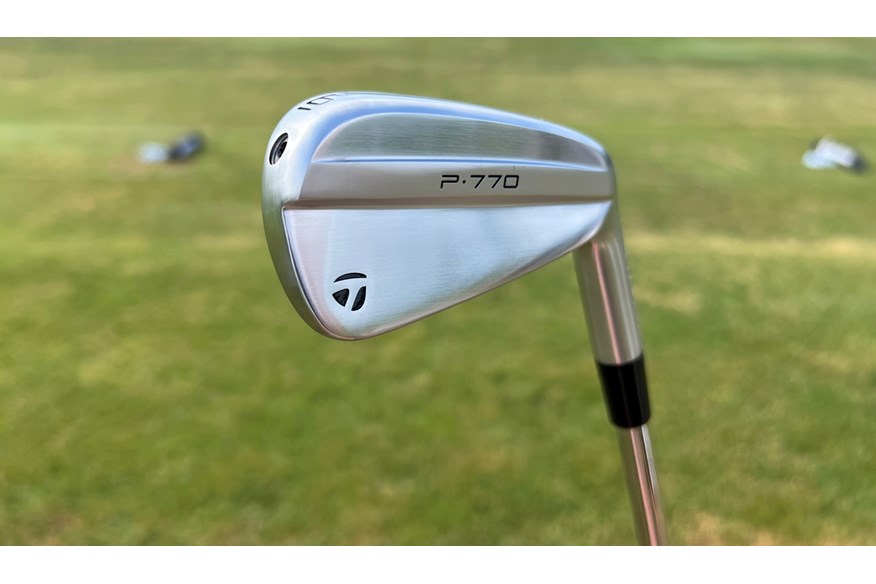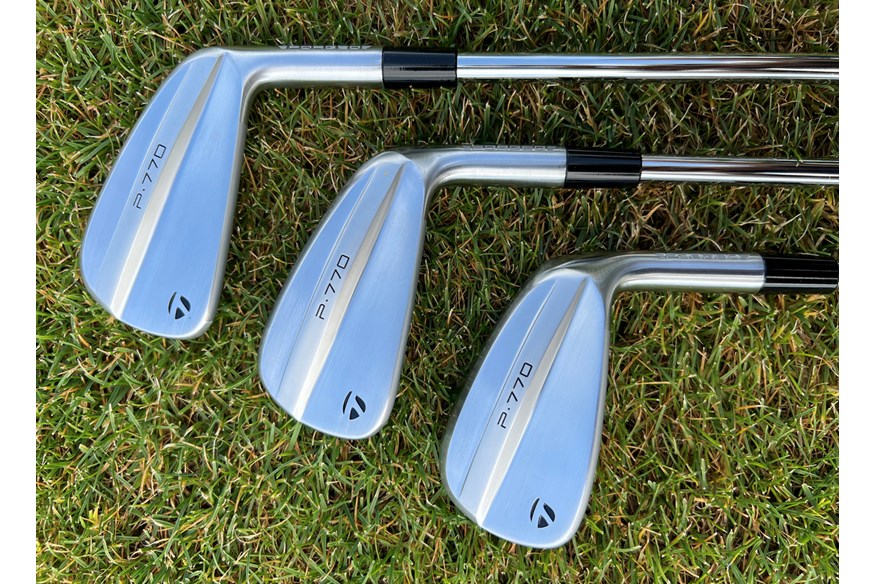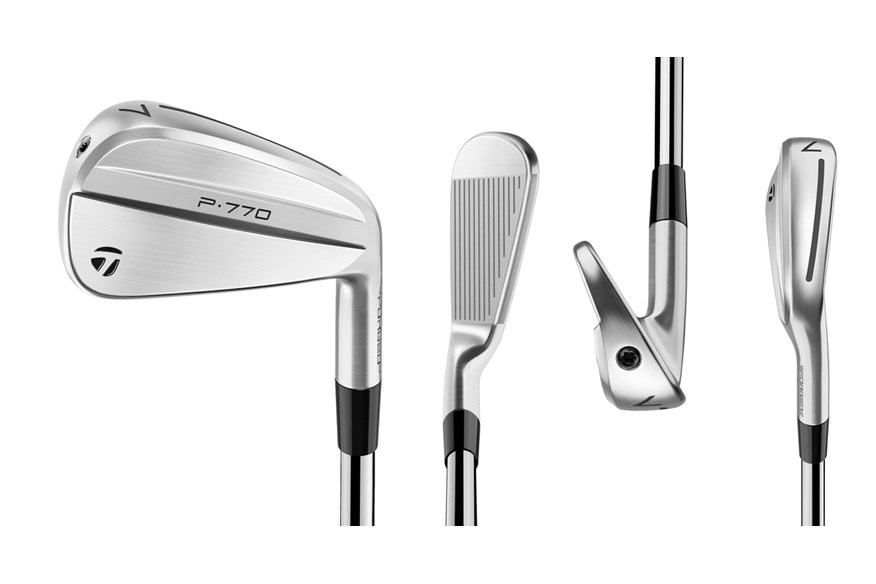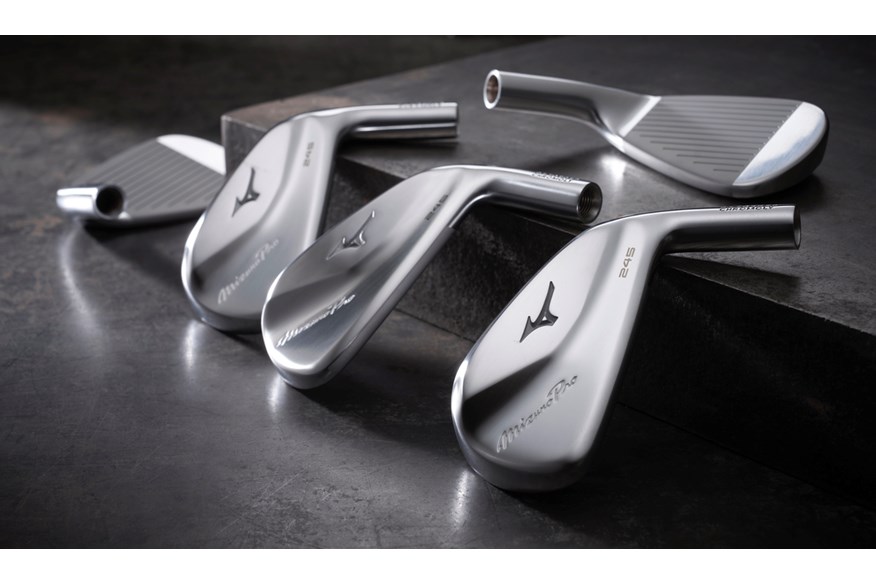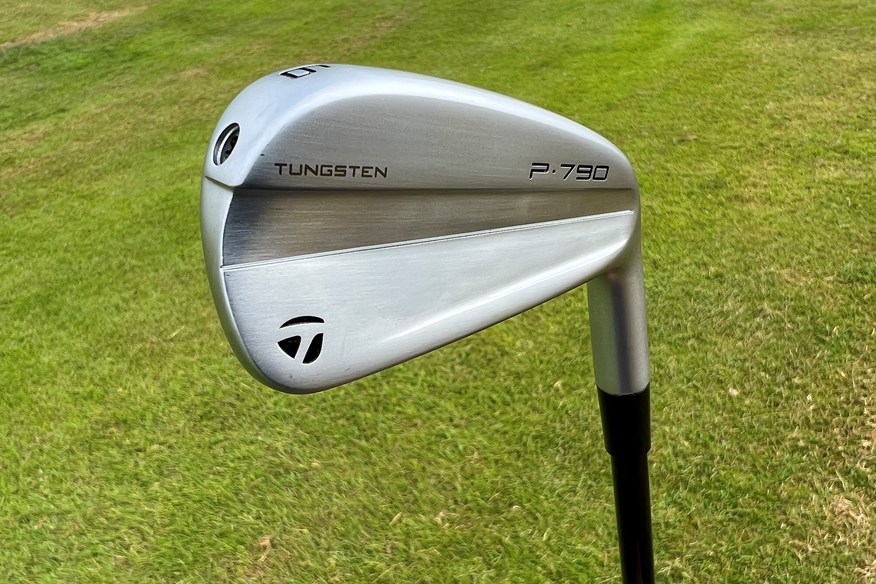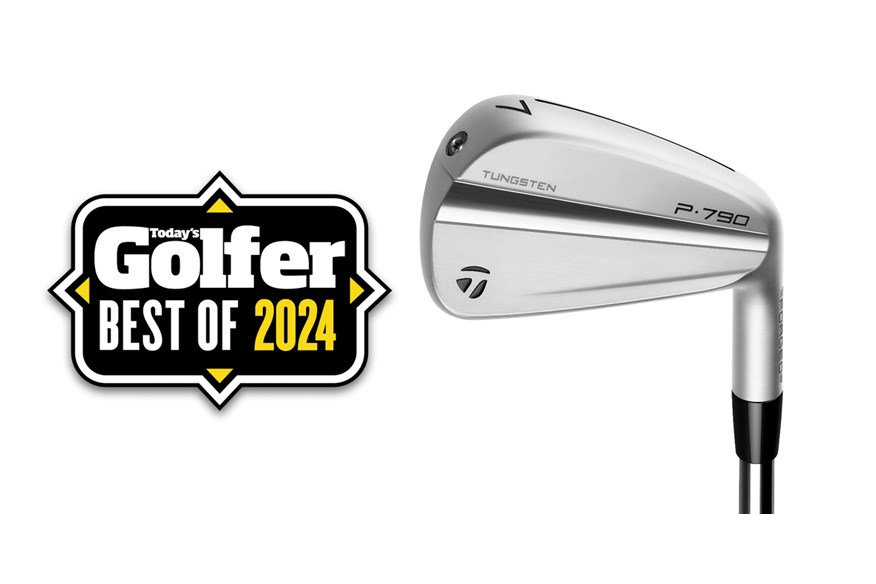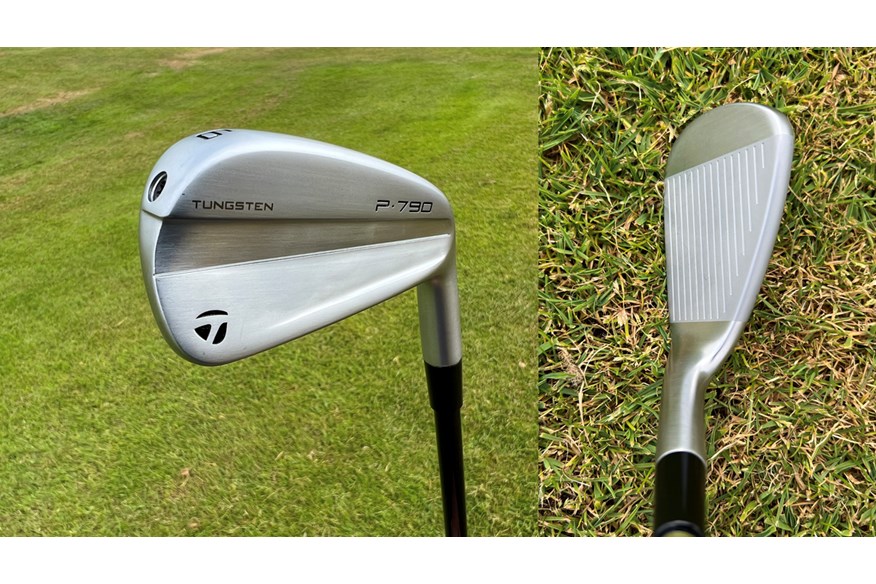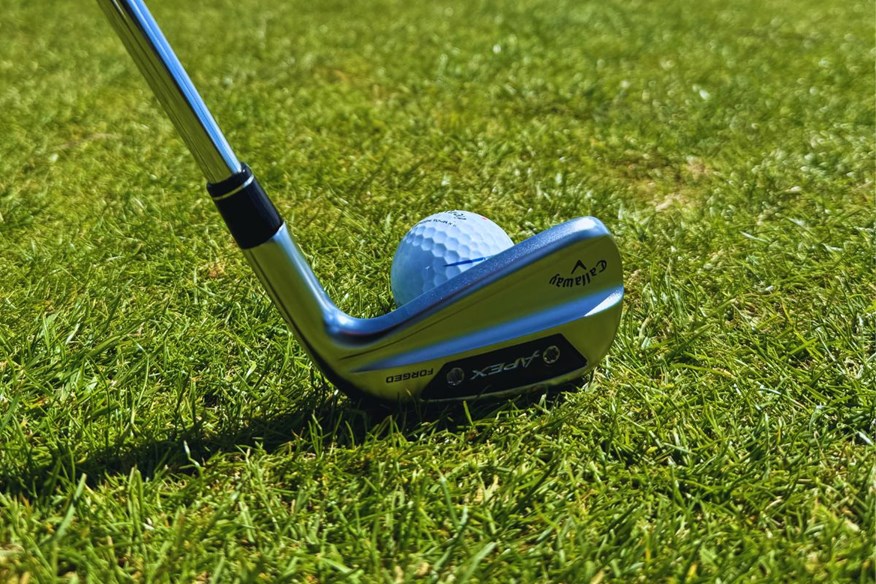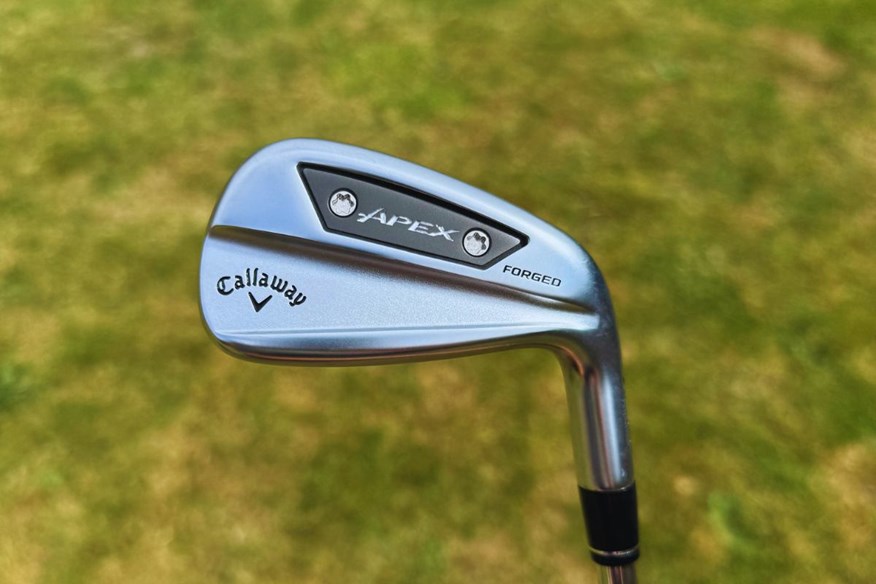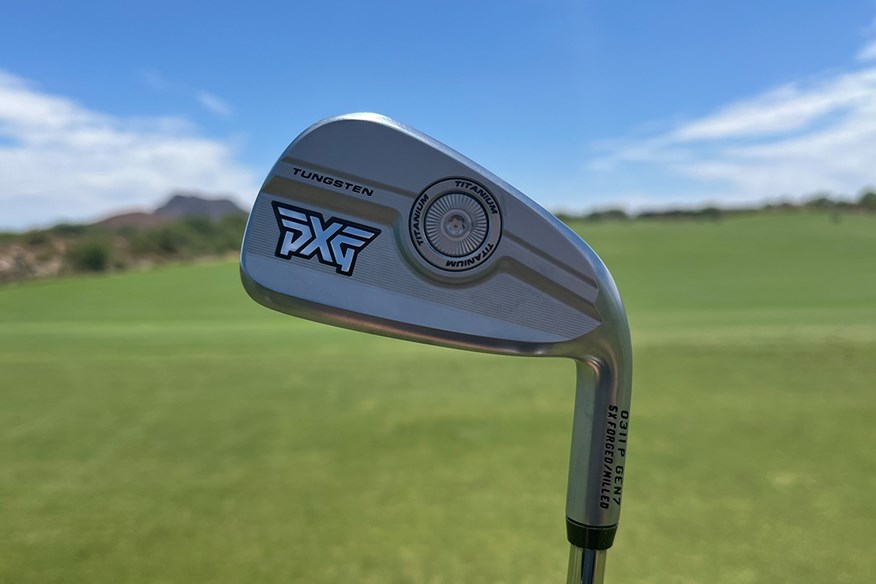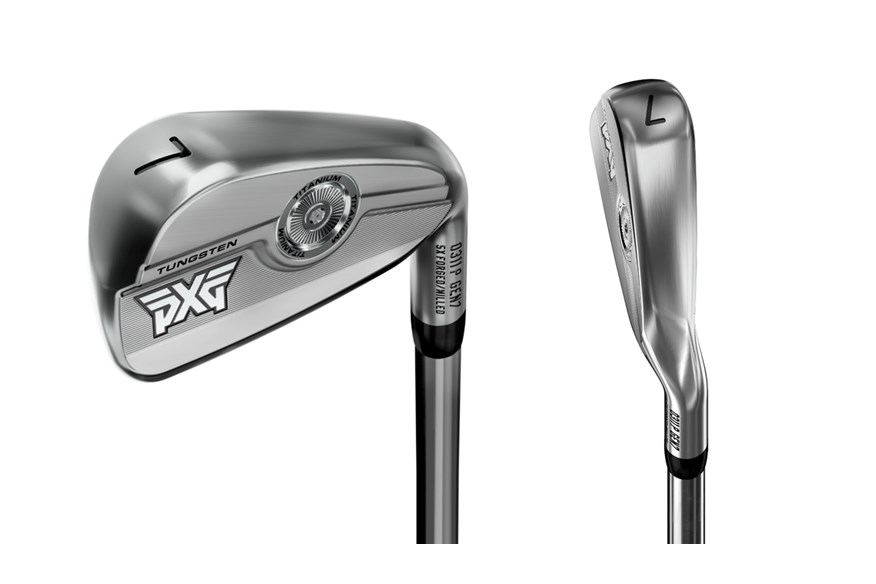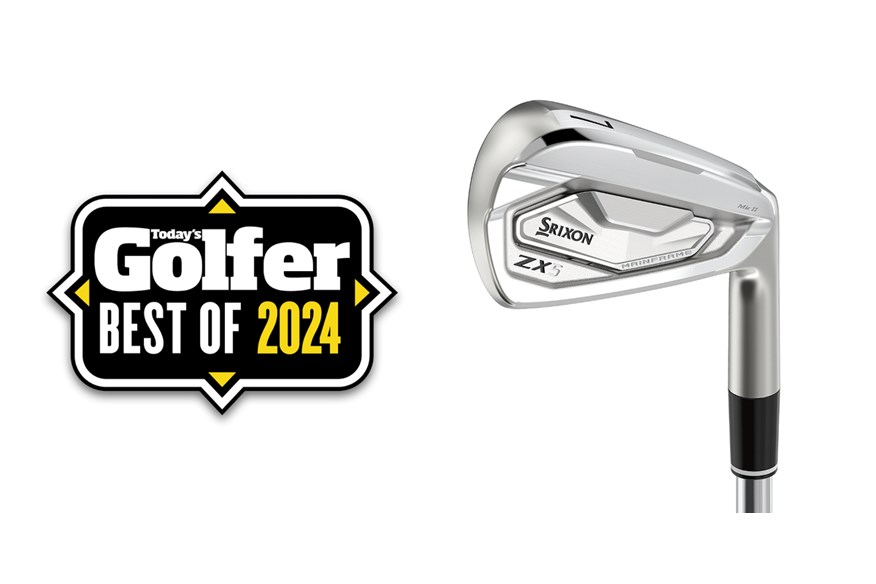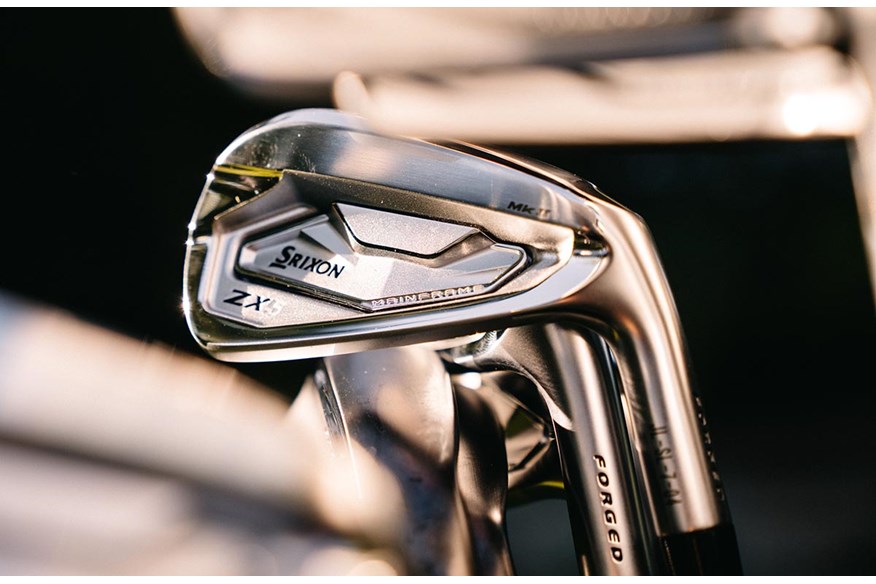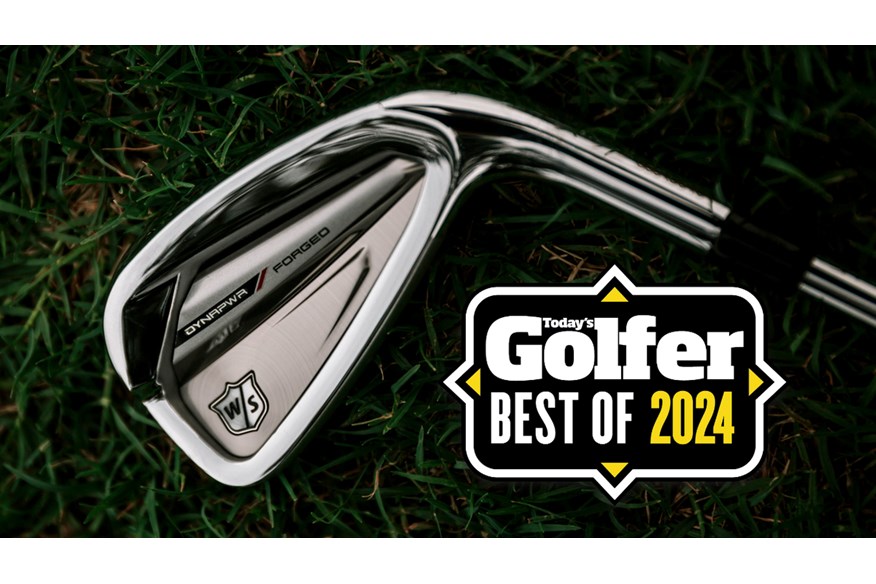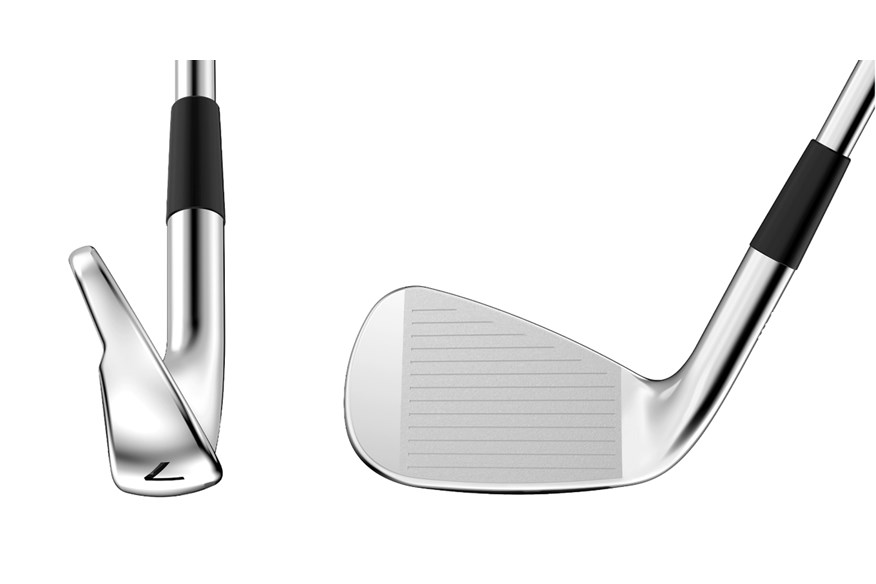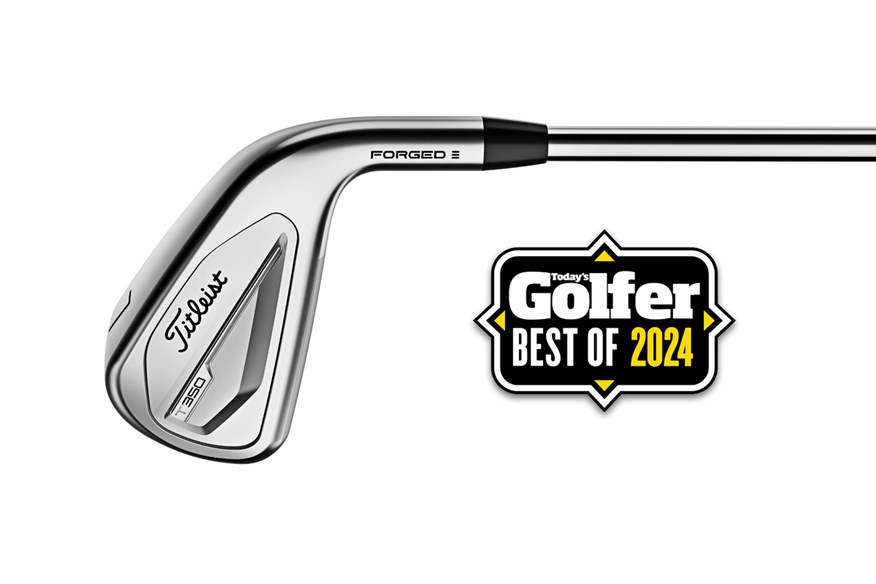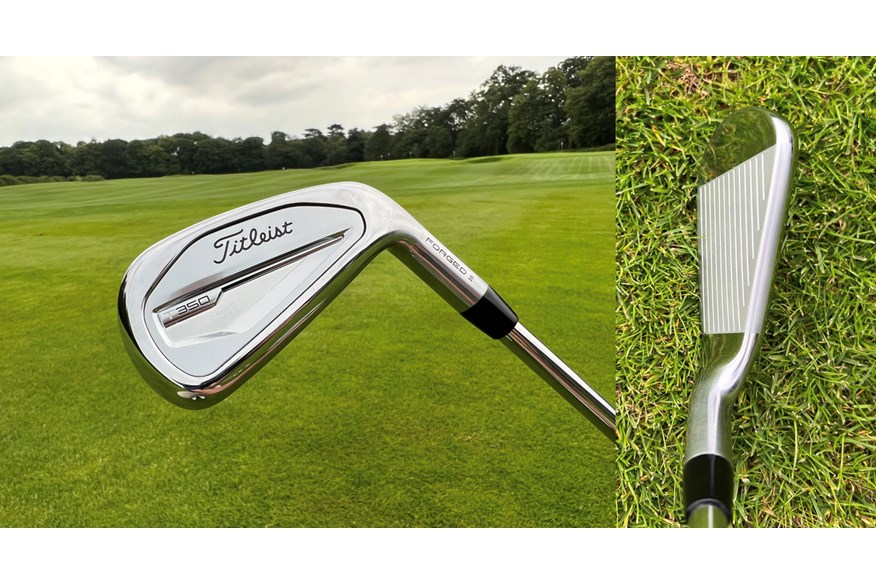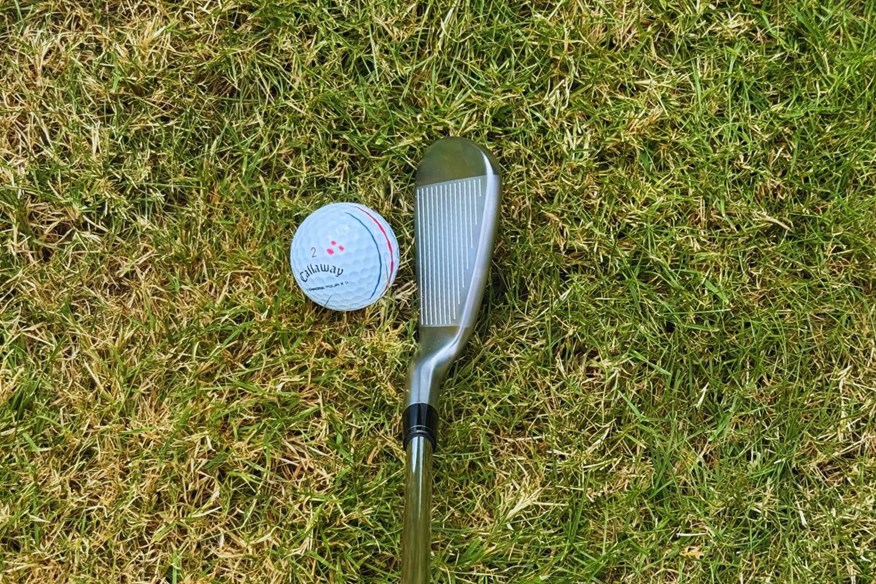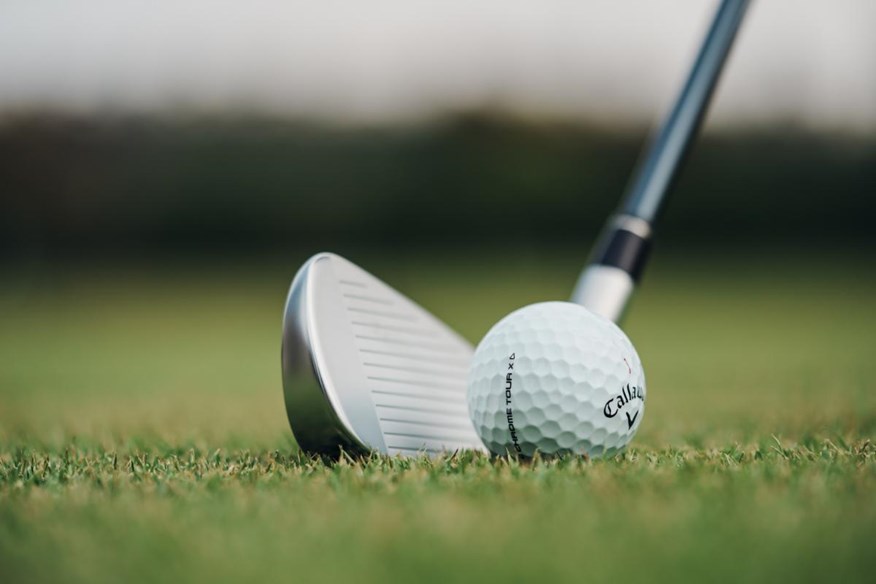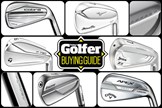Best Forged Golf Irons 2025: The best in feel and performance
Last updated:
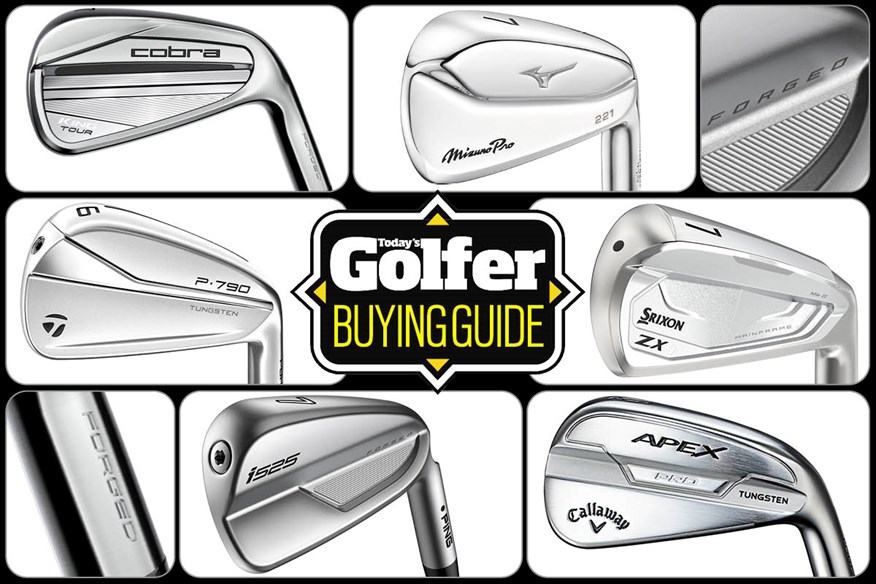
The best forged golf irons offer unrivaled feel and sound, but are they right for your game, and which model should you go for? My head-to-head test will help you pick the best forged iron for your game.
The best forged golf irons have historically been seen as the players’ choice among the best golf irons available. Decades ago forged irons were typically aimed at better players, as their smaller more compact heads and weaker lofts lacked the distance and forgiveness-boosting technologies packed into their cast, less expensive rivals.
Things have changed dramatically though, the best forged golf irons now target delivering additional feel and sound performance to mid and high-handicappers just as much as they do to those using the best players’ distance irons and the best players’ iron models.
If you want the ultimate feel and feedback from your irons, a forged set is likely to be the way to go. To help with your decision-making in this massive category I’ve pulled together a categorized shortlist below of award-winning irons, backed by our test pro’s comparative launch monitor data and accompanying expert verdicts. I suggest reading on so you have a firm understanding of what forged irons can do for you before heading down to my best forged iron picks lower on the page. To maximize your potential I’d seriously recommend committing to a full custom fit session with a suitably qualified professional before making a purchase.
Best Forged Irons – Jump to:
- Best at a glance
- What makes a forged iron?
- Not all forged irons are 100% forged
- Why do so many golfers believe forged irons feel better?
- Are forged irons a premium option?
- Are forged irons only for good players?
- How we test
- The data
- Best forged Muscleback Blades
- Best forged Players’ irons
- Best forged Players’ Distance Irons
- Best forged irons for Mid-Handicap golfers?
- Buying Guide / FAQs
Best at a glance: My top picks from our 2025 award winners
Best Muscleback Blade for adjustability: PXG 0317 ST | VIEW OFFER
Best traditional Muscleback Blade: Wilson Staff Model | VIEW OFFER
Best modern Muscleback Blade: Ping Blueprint T | VIEW OFFER
Best Players’ Iron for adjustability: PXG 0317 CB | VIEW OFFER
Best Hollow Body Players’ Iron: TaylorMade P770 (2024) | VIEW OFFER
Best forged Players’ Iron: Ping Blueprint S | VIEW OFFER
Best Traditional Players’ Iron: Mizuno Pro 243 | VIEW OFFER
Best Tour Level Players’ Iron: Srixon ZX7 MK II | VIEW OFFER
Best value for money Players’ Iron: Takomo 301 CB | VIEW OFFER
Best Players’ Distance Iron: TaylorMade P790 (2023) | VIEW OFFER
Best looking forged Players’ Distance Iron: Callaway Apex Ai200 | VIEW OFFER
Best Players’ Distance Iron for adjustability: PXG 0311 P GEN7 | VIEW OFFER
Best compact Players’ Distance Iron: Mizuno Pro 245 | VIEW OFFER
Best Cavity Back Players’ Distance Iron: Srixon ZX5 MK II | VIEW OFFER
Best Traditional Players’ Distance Iron: Wilson Dynapower Forged | VIEW OFFER
Best forged iron for mid/high handicappers: Titleist T350 | VIEW OFFER
Most forgiving 100% forged iron: Callaway Apex Ai300 | VIEW OFFER
Best Looking Mid-Handicap Iron: Srixon ZX4 | VIEW OFFER
How we tested the best forged golf irons
We asked the leading brands to send us their 2025 forged irons in our test Pro Neil Wain’s specs.
We created an indoor test lab at Keele Golf Centre to ensure a controlled environment, which meant we could use premium Titleist Pro V1x golf balls and a Foresight GC Quad launch monitor to create the most reliable data possible. We rejected major misses but recorded how shots launched, span, peaked out, and how far they flew in which direction.
See more about how TG tests golf clubs and other equipment.
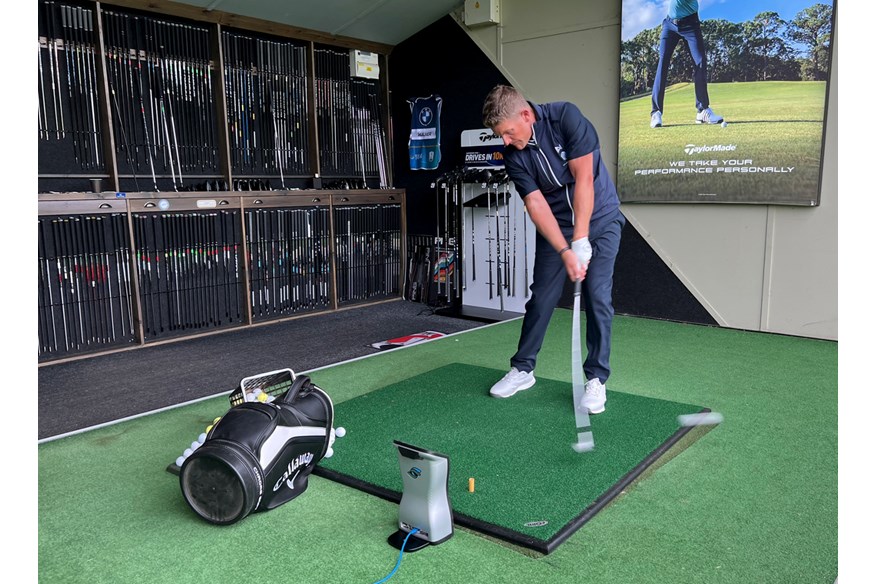
What makes an iron forged?
Ever since Ping introduced their cast cavity back Eye irons in the 60’s and 70’s there’s been a couple of ways to create golf irons. Until Ping arrived on the scene with their super popular ‘cast’ cavity back models, irons were predominantly muscleback blades and stamped into shape using a very heavy press – a forge.
Essentially forging involves a number of stages of stamping and squeezing a hot metal bar (a billet) into tooling to create the head shape a designer wants. Today forged irons (depending on their complexity) regularly go through three to five different size and tool shapes to create their final shape. Each stage involves heating the head and pressing it into shape under the pressure of the heavy forge (2,000 ton presses are not uncommon) which aligns the grain structure of the metal more closely than when molten metal is poured into a cast.
It’s this aligning of the metal’s structure that is said to produce a better feel, less vibration, and an improved sound, all traits often preferred by better players. All forged irons have to have at least one component within the head that’s hit with the forge, but thanks to modern iron construction methods not all forged irons are 100% forged.
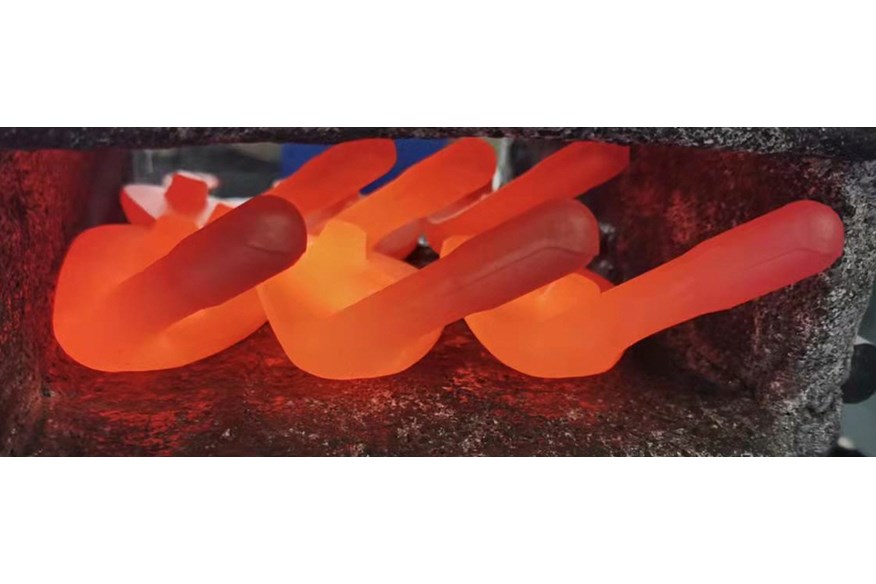
Not all forged irons are 100% forged
Many manufacturers often stamp irons up as forged, as they know tons of golfers perceive forged irons to be of better quality than their cast alternatives, even though studies have shown many of the world’s best golfers struggle to spot forged irons in blind cast vs forged iron tests. Decades ago forged muscleback blade irons lent themselves to being forged in one piece, as their designs were straightforward to create with a heavy forge dropping onto the product vertically from above.
Today’s lots of the best players’ irons are still created in one piece much like blades were decades ago, essentially though this method is pretty crude and inflexible if you’re an iron designer. With the best engineers and designers working out hollow body constructions and thin fast faces bringing additional benefits to golfers lots of modern forged irons aren’t actually 100% forged.
Models like the TaylorMade P7CB, Callaway Apex CB, and PXG 0317 CB are whereas models like the Srixon ZX5 MK II, TaylorMade P790, and Titleist T200 have components that are forged but the whole product isn’t.
There’s some debate around which part of the irons should be forged too. Where the PXG 0311 GEN7 P and TaylorMade P790 have forged bodies models like the Mizuno Pro 245 and Ping i530 have forged faces, so just be aware when you’re buying forged irons it’s highly likely not everything about your new set will be forged.
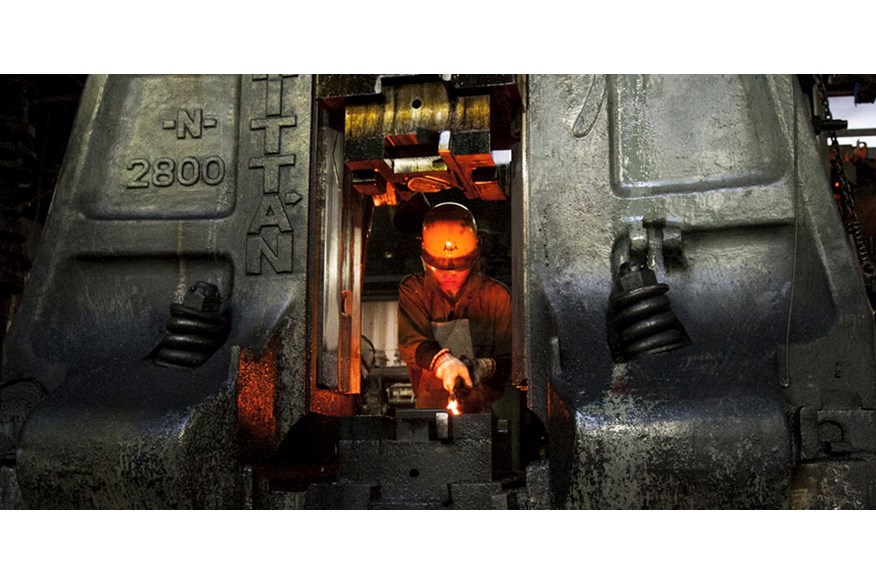
Why do many golfers believe forged irons feel better?
A lot of the myth and legend surrounding the feel and sound of forged irons being better comes down to the tighter alignment of the metal’s grain structure inside, which comes about thanks to the forging process. However, some will argue that sort of thinking used to be more true when irons were forged in single pieces. Today’s multi-piece models often need polymer fillers to support the face (so it won’t cave in) and manage vibration so golfers get the feel and sound frequencies most commonly associated with forged irons.
Of course, with well over 95% of tour events being won by players who earn their crust using forged irons (most are one-piece forged models) there will always be an air of superiority attached to the category too.
Are forged irons a premium option?
Often the price of forged irons will be higher than their cast equivalent. Where the TaylorMade part forged P790 is $1299 for a 7-piece set, the brand’s cast Qi set is over $200 cheaper at $1099. Just because forged irons typically cost more do not think cast irons are in any way inferior, in fact, their designs can often be much more varied thanks to their production method.
A lot of the extra costs of forged irons go into the tooling, with complex irons like the PXG 0311 GEN7 XP needing five sets of expensive and carefully machined tools for producing each iron (that’s 40 tools for an eight-piece set), where cast models need just one for each head in the set.
Forged irons don’t always have to be expensive options. Direct to Consumer brands like Takomo and Ben Hogan produce much more reasonably priced forged sets too. Thanks to being predominantly sold online though you will need to know what you want as fitting often isn’t readily available.
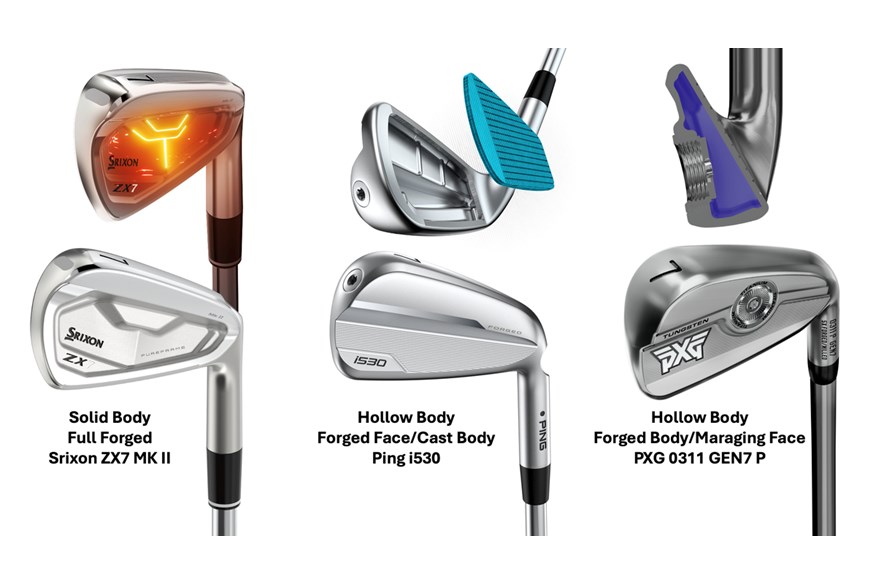
Are forged irons only for good players?
Absolutely not, forged irons are for anybody who feels there’s a benefit to paying for their supposed extra feel and sound performance. Whereas years ago players’ irons were predominantly forged, today it’s just as possible to find great forged models in the best players’ distance iron category as it is within the best mid-handicappers iron arena. Our most forgiving forged iron page will help you identify which models are most playable on the golf course.
Best Forged Golf Irons 2025: The Data
How the Best Forged Blade Irons compare in data (Test Pro data):
| Iron | 7-Iron Loft | Ball Speed | Launch Angle | Backspin | Peak Height | Descent Angle | Carry Distance | Carry Distance Drop Off | Shot Area |
| Ping Blueprint T | 33° | 120.7 MPH | 16.6° | 5630 RPM | 30 YDS | 44.1° | 178 YDS | 8 YDS | 98.4 SQ YDS |
| PXG 0317 ST | 33° | 118.9 MPH | 15.4° | 5619 RPM | 27 YDS | 42° | 174 YDS | 9 YDS | 184.5 SQ YDS |
| Wilson Staff Model Blade | 34° | 118.7 MPH | 16.9° | 5661 RPM | 30 YDS | 43.9° | 174 YDS | 14 YDS | 312.2 SQ YDS |
How the best Forged Players’ Irons compare in data (Test Pro data):
| Iron | 7-Iron Loft | Ball Speed | Launch Angle | Backspin | Height | Descent Angle | Carry Distance | Carry Distance Drop Off | Shot Area |
| PXG 0317 CB | 33° | 122.8 MPH | 16.6° | 5568 RPM | 32 YDS | 45.7° | 179 YDS | 7 YDS | 142.1 SQ YDS |
| Srixon ZX7 MK II | 32° | 122.9 MPH (3) | 16.7° | 5757 RPM | 32 YDS | 46.1° | 178 YDS | 7 YDS | 57.4 SQ YDS |
| Ping Blueprint S | 33° | 121.3 MPH | 16.7° | 5498 RPM | 31 YDS | 45.1° | 177 YDS | 9 YDS | 188.1 SQ YDS |
| Mizuno Pro 243 | 32° | 122.2 MPH | 16.6° | 6035 RPM | 32 YDS | 46.3° | 174 YDS | 18 YDS | 387 SQ YDS |
| TaylorMade P770 (2024) | 33° | 121.9 MPH | 15.2° | 6942 RPM | 30 YDS | 45.3° | 171 YDS | 10 YDS | 183 SQ YDS |
How the best Forged Players’ Distance Irons compare in data (Test Pro data):
| Iron | 7-Iron Loft | Ball Speed | Launch Angle | Backspin | Height | Descent Angle | Carry Distance | Carry Distance Drop Off | Shot Area |
| Callaway Apex Ai200 | 30° | 126.7 MPH | 13.9° | 5775 RPM | 30 YDS | 44.3° | 182 YDS | 11 YDS | 157.3 SQ YDS |
| Srixon ZX5 MK II | 31° | 122.8 MPH | 15.8° | 5292 RPM | 30 YDS | 44° | 181 YDS | 18 YDS | 392.4 SQ YDS |
| PXG 0311 P GEN7 | 30° | 123.5 MPH | 15° | 5851 RPM | 30 YDS | 44.2° | 178 YDS | 12 YDS | 306 SQ YDS |
| TaylorMade P790 | 30.5° | 121.6 MPH | 15.1° | 5932 RPM | 29 YDS | 43.7° | 175 YDS | 8 YDS | 180.8 SQ YDS |
| Wilson Dynapower Forged | 30.5° | 120.8 MPH | 13.9° | 5482 RPM | 26 YDS | 41.1° | 175 YDS | 9 YDS | 188.1 SQ YDS |
| Mizuno Pro 245 | 30° | 119.3 MPH | 16.1° | 5481 RPM | 29 YDS | 43.6° | 173 YDS | 14 YDS | 271.6 SQ YDS |
How the best Forged Mid-Handicap Irons compare in data (Test Pro data):
| Iron | 7-Iron Loft | Ball Speed | Launch Angle | Backspin | Height | Descent Angle | Carry Distance | Carry Distance Drop Off | Shot Area |
| Srixon ZX4 MK II | 28.5° | 126.4 MPH | 14.7° | 5030 RPM | 30 YDS | 43.1° | 189 YDS | 22 YDS | 594 SQ YDS |
| Callaway Apex Ai300 | 29° | 127.9 MPH | 14° | 5343 RPM | 30 YDS | 44° | 186 YDS | 14 YDS | 233.8 SQ YDS |
| Titleist T350 | 29° | 125.5 MPH | 14.3° | 5159 RPM | 29 YDS | 42.6° | 186 YDS | 11 YDS | 167.2 SQ YDS |
Let me introduce the best forged golf irons money can buy…
Best Forged Blade Irons 2025:
The fastest and longest blade we’ve tested this year.
Just like the original Blueprint, the new T has an incredibly good head shape, it’s really inviting sat behind the ball, and I just wish I was good enough to deploy the model on the golf course. Forged irons and Ping have never really been easy bedfellows as the company insisted for decades that cast irons could feel just as good as forged models. It’s intriguing then that the company now has three different irons with forged components (Blueprint T, Blueprint S, and i530), which for me marks a significant move away from the brand's decades-old stance on the material best suited to iron production.
I love the way that Ping doesn’t make a big deal about their forging process, not in the way a company like Mizuno has to with their Pro 241. All in our test pro felt he struggled to feel a difference between the T and the Mizuno Pro 241, which has to say sometimes the myth around forged blade feel is built up to levels that don’t really exist. Where Mizuno might have forged iron heritage, Ping has tons of great iron know-how, and based on our data I’d have no hesitation in recommending the Blueprint T to anyone looking at new muscleback blades in 2025.
For our test pro, the model was the fastest and longest blade we’ve tested this year, but if I were buying a set myself my eyes would be drawn more to the model offering up the 3rd smallest carry distance drop-off, and shot area size, numbers that will contribute to lowering scores rather than getting carried away about feel and feedback.
Read our full Ping Blueprint T iron review.
Pros
- Very good-looking iron.
- Minimal offset will suit good players.
- More forgiving than the original Blueprint.
Cons
- Some purists may be put off by the toe screw and notched hosel.
| Availability | 3-PW |
| Stock shafts | True Temper Dynamic Gold 120 (S300, X100) |
| 7-iron loft | 33° |
| Forgiveness rating | 1/5 |
| Category | Muscleback Blade |
Perhaps the best muscleback iron on the market.
Best Muscleback Blade For Adjustability
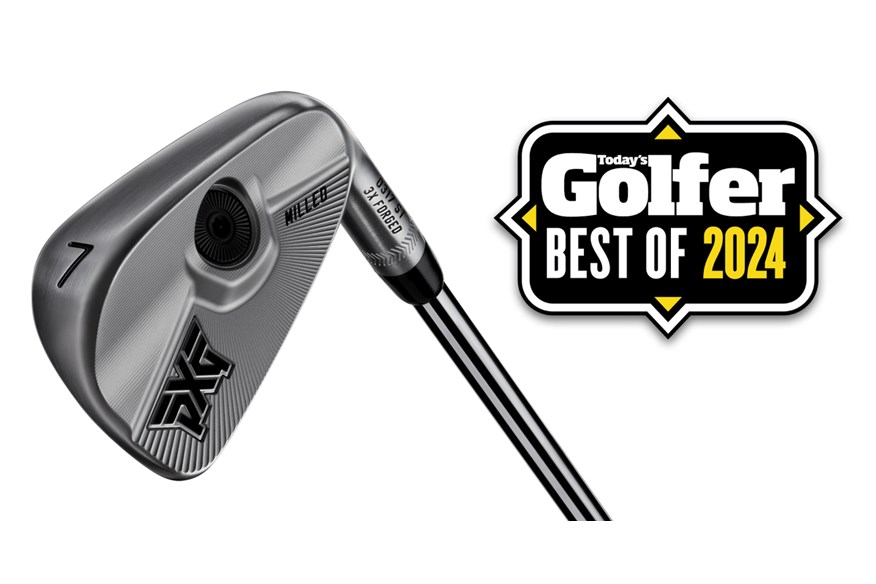

PXG knows a thing or two about making great irons. As is their calling card throughout their iron family the 317s have delicious straight-line head shapes, throughout the set and a really premium satin finish. Our pro loved the feel and feedback and it’s no exaggeration when I say he hit them incredibly well.
Speed and distance should never be factors when buying in the blade category but surely the 0317 has to score points for producing above-test average levels of ball speed and ranking tied 2nd longest for carry distance. The model also registered a shot area 26% smaller than our test average. Now don’t get me wrong I’m not saying this is a forgiving blade, it isn’t, but the data does support the reputation that PXG has built for making slightly straighter irons than most.
If I were spending my own money though the real deal sealer is PXG’s very clever central weighting system. Golfers can go lighter or heavier (which can boost ball speed, distance, and consistency), longer or shorter without moving the center of gravity location and thus altering feel. To me, it’s a genius idea, and brilliant if you want to optimize a set for your own game in 2025.
Read our full PXG 0317 ST iron review.
Pros
- A beautiful traditional blade profile.
- Can be weighted up or down without changing the CG location.
- Even decent ball strikers will appreciate the cavity-back long irons.
Cons
- Unforgiving on off-center hits, so they're for high-skill ball strikers only.
| Availability | 3-PW |
| Stock shafts | True Temper Elevate 95 (s), KBS Tour Lite (s), Mitsubishi MMT (g), Project X Cypher (g), UST Recoil Dart (g) |
| 7-iron loft | 33° |
| Forgiveness rating | 1/5 |
| Category | Muscleback Blade |
One of the best-performing blade irons in 2025.
Just like its predecessor the Staff Model is a great-looking blade, it comes with a highly polished chrome finish that’s as traditional as iron finishes get. Compared to the PXG 0317 ST the Wilson does have a more intimidating look at address, which is down to the topline thickness and sole widths being so wafer thin, but bear in mind Wilson’s staff players have fed directly into this design. Obviously, there’s an audience out there who like and favor the look, just beware that even if you’re looking to combo blade short irons with Wilson’s brilliant new Staff Model CB (Players’ Iron) mid and long irons, I would not describe the model in any way as being confidence-inspiring.
From a standard 34° 7-iron loft in the blade category the Staff Model produced a fraction more ball speed, more launch and shot height than our test averages, it also tied 2nd for carry distance. If your game happens to be good enough to consider employing a set of blades this year the Staff Model is one of my three best-performing blades in 2025.
Read our full Wilson Staff Model Blade iron review.
Pros
- Feel and impact are sensational.
- For an iron of this quality, the cost is very reasonable.
- Head shapes and profiles don't come any more traditional.
Cons
- These are amongst the least forgiving irons on the market.
| Availability | 4-PW (Custom Order 2 and 3 iron) |
| Stock shaft | True Temper Dynamic Gold Mid 115 |
| 7-iron loft | 34° |
| Forgiveness rating | 1/5 |
| Category | Muscleback Blade |
Best Forged Players’ Irons 2025
A stunning iron with all the hallmarks of being a timeless classic
I’ve been testing Ping irons for 15+ years and I can confidently say I’ve never been so excited by any of the brand's previous player-focused models. The Blueprint S has a beautifully simple head shape, gone completely is the ‘boxy’ or longer blade length shape that critics used to put the brand's better player models down for. In my mind, the S is right there alongside the Mizuno Pro 243 and Srixon ZX 7 MK II as one of the very best-shaped players’ irons of the year.
Our test pro loved the forged feel, and sound, preferring the impact sensation to his previous set of cast i230’s, a model he played for nearly 18 months. Comparing the two sets the pair are almost identical in terms of data bar the four yards carry distance gain in favor of the S. Just remember choosing players’ irons should be more about shape, feel, ball flight, and consistency, so if ball speed and distance creep into your thinking, you really should be looking at players distance irons instead.
In terms of distance, the S carried shots comfortably above our test average (3 yards), with the carry distance drop-off and shot area being just below and above the test averages respectively. That sort of performance says to me the model is well decked out to perform across the board for consistent ball strikers.
Any decision between the S and i230 is likely to come down to how much premium you put on playing forged irons. Out on tour, this is huge, hence why the Blueprint S is seeing such success in the hands of the best players in the world. For decent club golfers price is also likely to be a factor as a 7-piece steel shafted set will set you back £140 more by opting for the forged S. When you’re making your decision don’t forget to factor in the new pocket cavity tech in the S long irons, which will offer up a little more forgiveness.
In my book, the Blueprint S is a stunning set of irons, thanks to being forged and deliciously well shaped they have all the hallmarks of being a timeless classic set, hence why they’re among my five best players’ irons of 2025.
Read our full Ping Blueprint S iron review.
Pros
- This is Ping's first forged cavity back iron in a decade.
- An excellent blend of sound, feel, and forgiveness within the chassis of a tour iron.
- Toe and shaft tip weights cleverly up MOI.
Cons
- Ping forged irons always represent a sizeable investment.
| Availability | 3-PW |
| Stock shaft | True Temper Dynamic Gold 120 |
| 7-iron loft | 33° |
| Forgiveness rating | 2/5 |
| Category | Players' Iron |
An absolute beast of a tour-level forged iron.
Best Tour Level Players' Iron
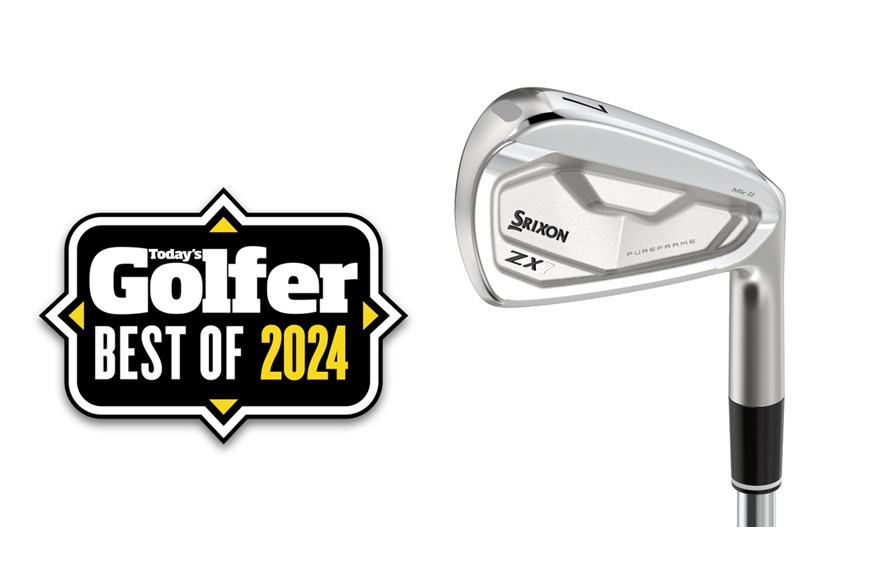

Why do we like it so much? Well, it’s got natural elegance, with a super straight topline, compact shape, and a lack of offset, all features that many decent players just adore. Importantly it also has a timeless classic design which isn’t going to feel old hat next year either.
Throw into the mix a third-best ball speed performance in the players’ iron category in 2025. A fourth-best carry distance, plus a 23.2% smaller carry distance drop-off and 67.1% smaller shot area than our test averages and you can see in the right hands the ZX7 is an absolute beast of a tour-level forged iron.
On top of everything else, our test pro thought the feel and feedback from the ZX7 was out of this world good, and right up there alongside the Mizunos of this world. If you find yourself dithering on the line between this model and its more speed and distance-focused sibling the ZX5, our data shows you’ll give up three yards or so distance but gain 500 RPM of backspin to play the ZX7. For proper players’ you’ll probably want the additional control brought by that extra spin.
Read our full Srixon ZX7 MKII irons review.
Pros
- Exceptional feel.
- Brilliant all-round performance.
- Fantastic looking with its timeless design.
Cons
- Slightly more speed and distance to be found in the ZX5.
| Availability | 3-PW |
| Stock shaft | Nippon NS Pro Modus3 Tour |
| 7-iron loft | 32° |
| Forgiveness rating | 2/5 |
| Category | Players' Iron |
One of the best-performing players' irons of 2025.
Best Players' Iron For Adjustability
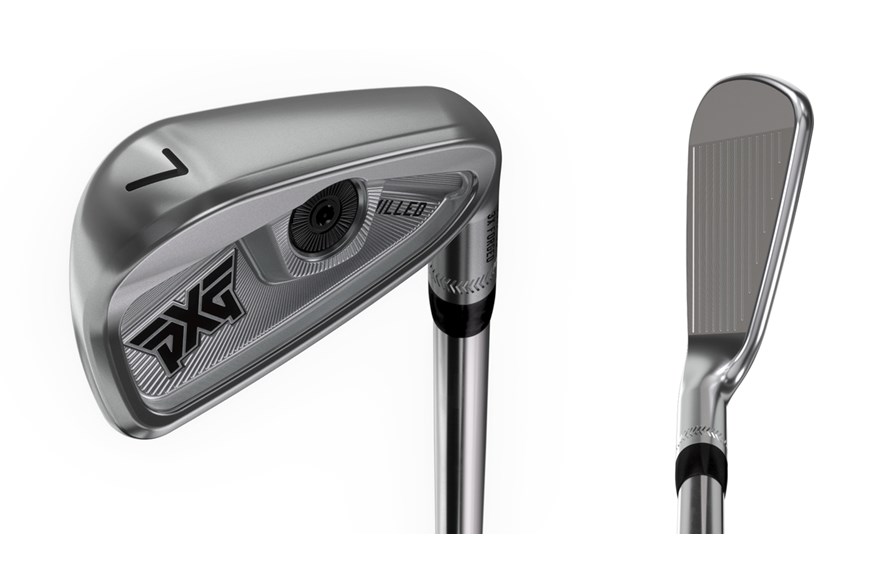

Through working with their ‘elite’ players PXG has come to understand that a majority of very good players just want a forged compact cavity back iron to play on tour. As good as hollow body constructions are, with their fast faces, many of the best players in the world just want consistency from their irons. So, fair play to PXG for listening to their team and creating a 0317 family just for elite players.
In typical PXG style, there are three 0317 irons calling out for the attention of golfers shopping within the players’ iron category (0317 ST, 0317 CB, 0317 T) in 2025. Incredibly the T and CB both fly high at the top of our data sheet in the Players’ Iron category this year.
While both are lovely looking, feeling, and sounding irons I’ve plumped for the 0317 CB as picking within this category really shouldn’t come down to speed and distance. Yes, the slightly stronger lofted, hollow body 0317 T was 2.2mph faster on ball speed, it also produced three more yards of 7-iron carry distance, but our test pro just felt the CB is a better choice for low single-digit handicappers looking for maximum control and shot to shot consistency.
From a 7-iron loft bang on our test average the one-piece forged CB head produced a ball speed faster than the test average, yet launched and flighted shots higher, with a steeper descent angle so hitting shots into a green will be much like throwing darts at a board. Combine that performance with a smaller carry distance drop-off and tighter shot area than our test averages and you have one of the best-performing players’ irons of 2025 on your hands.
Great work, with congratulations being due to PXG for their first forged cavity back iron endeavor.
Pros
- Excellent control and shot consistency.
- High flights with steep decent angles.
- Strong carry distances.
Cons
- Not the fast ball speeds within the 0317 family.
| Availability | 3-PW |
| Stock shaft | True Temper Elevate 95 (s), KBS Tour Lite (s), Mitsubishi MMT (g), Project X Cypher (g), UST Recoil Dart (g) |
| 7-iron loft | 33° |
| Forgiveness rating | 2/5 |
| Category | Players' Iron |
Quick and powerful with excellent control and workability.
I’m no Mizuno knocker but there’s no getting away from how the brand's iron launches over the last few years have become a bit predictable. Within the JPX family, I’ve seen the 919, 921, and 923 families covered over the last six years. We’re also now into the 2nd generation of Pro irons which by the time they’re retired will have spanned an additional 4 years too.
Hand on heart if I bought an original set of either franchise, I’d really struggle to say any subsequent generation, bar the introduction of springy chromoly steel, has been a huge step forward in terms of performance. That’s not a slight on the most recent updates but if you own previous models I reckon you don’t have to keep updating to the latest and greatest. However, if you’re new to Mizuno or just looking for a great set of players’ irons the Pro 243s represent a very solid choice in 2025.
Cast your eye over our test data and you won’t find the Mizuno Pro 243 on the podium for any single metric. Yet our test pro was adamant the model felt quick and powerful (it produced a faster-than-average ball speed) and offered him the ball flight, control and look he wanted from a forged cavity back tour-level iron. To back up his thinking, compared to the 2° weaker Mizuno JPX923 Tour iron the Pro 243 hit shots higher, with a steeper decent angle and additional spin, features lots of decent players will appreciate. Factor in top draw levels of feel and you have an iron that’s well worth a position among our favorite five players’ irons of 2025.
If you’re looking at this category in 2025 it’s really hard to make a bad choice, as there are so many good irons within the players’ iron arena. I’d be drawn to the Mizuno Pro 243 not only because it’s a very solid performer across the board, but because there’s also a two life expectancy ahead of it. If you’re the type of person who likes to have the very latest model in their bag, bear in mind the JPX family is also due for replacement later this year.
Read our full Mizuno Pro 243 irons review.
Pros
- Expect beautifully shaped heads.
- Guaranteed great feel and feedback.
- Lots of shaft options at zero upcharge.
Cons
- All the Mizuno Pro irons are seriously costly options in 2024.
| Availability | 4-PW |
| Stock shaft | Dynamic Gold Mid 115 |
| 7-iron loft | 32° |
| Forgiveness rating | 2/5 |
| Category | Players' Iron |
A modern beauty that stands up to the best on offer in 2025.
In previous years the P770 has been tough to categorize, but thanks to its players' profile (and weak 33° 7-iron loft), which TaylorMade crams with ball speed and forgiveness-enhancing tech, this is clearly a modern-day players’ iron. And if you’re happy to accept tech within the players’ iron arena the P770 is just about as good as they come.
For those who question what hollow body constructions and thin fast faces bring to the party, comparing the P770 to TaylorMade’s P7CB gives a great explanation of what tech does for the category. Thanks to tungsten weighting inside and a hollow body construction the latest P770 has a slightly higher MOI. Which is good for golfers who hit lots of straight shots, but less attractive for golfers who like shaping shots onto a flag.
In our 2024 test, the new P770 produced a ball speed 1.3 mph faster than the same loft P7CB. Shots launched higher, flew higher, and hit the green at a steeper descent angle with additional spin. Ok, only a single yard of carry distance separated the pair but experience tells me most decent club golfers will appreciate the ball fight traits of this hollow body model.
Read our full TaylorMade P770 (2024) iron review.
Pros
- Good levels of forgiveness for a player's iron.
- High ball flight apex and steep descent angles.
- Packed with ball speed and forgiveness-enhancing tech.
Cons
- Not ideal for those who like to shape shots.
| Availability | 3-PW |
| Stock shaft | KBS Tour |
| 7-iron loft | 33° |
| Forgiveness rating | 2-2.5/5 |
| Category | Players' Iron |
Best Forged Players Distance Irons 2025
A punchy players' distance irons that will fight it out with the best.
His thinking came down to loving the punchy feel of the Pro, and how its slightly weaker 7-iron loft gave him the hanging rather than boring ball flight he prefers. Our test data utterly supports what his eyes and gut feel were telling him. Unless you specifically want to lower ball flight with the JPX923 Hot Metal Pro, the 245 launched and flew higher (1.5° and 1 yard respectively) span 600 RPM more, and hit the green at a 1.8° steeper descent angle, all numbers that will help golfers score better on the golf course. Ok, the JPX was 13 yards longer (with a 7-iron) but its dispersion/shot area was also 63.4% bigger which is a huge price to pay in the area of the bag most golfers crave accuracy.
Tons of golfers will be weighing up a choice between the Pro 245 and other leading hollow body irons like the TaylorMade P790, Titleist T200, Ping i530, and PXG 0311 P GEN7 this year. My advice to anyone trying to fathom this conundrum is to go and try them side by side. Very quickly you’ll narrow your choice to a couple of favorite options based on head shape, feel, and ball flight traits.
From there be led by your ability to customize. All in, you can’t make a bad choice, these are great irons, hence why they all feature on my shortlist of top-performing Players’ Distance Irons of 2025.
Read our full Mizuno Pro 245 irons review.
Pros
- Expect beautifully shaped heads.
- Guaranteed great feel and feedback.
- Lots of shaft options at zero upcharge.
Cons
- All the Mizuno Pro irons are seriously costly options in 2024.
| Availability | 3-PW |
| Stock shaft | Dynamic Gold Mid 100 |
| 7-iron loft | 30° |
| Forgiveness rating | 2.5/5 |
| Category | Players' Distance Iron |
Players’ Distance Irons just don’t come any better.
There’s a real beauty in how the model from day one has been designed to be a timeless classic. The idea means there aren’t huge changes from generation to generation and if you happen to own a set of the original 2017 P790s they’re just as good today as what they were when golfers went nuts for the marquee seven years ago.
The untrained eye will likely look at our data charts and wonder why thanks to being in a ‘distance category’ the P790 which posted almost bang-on average carry warrants such praise. Let me explain.
With a 30.5° loft in the 7-iron, the P790 is nowhere near the strongest loft players distance iron we tested this year, in fact, it’s 2° weaker than the Mizuno JPX923 Hot Metal Pro that also produced the fastest ball speed and longest carry distance. But look more closely and you’ll see how the P790 produced a ball speed above our test average while flying shots higher, spinning more and hitting the green at a steeper angle so shots will stop when they hit the dancefloor.
When we put the P790's aesthetics, feel, and sound into the mix along with a tied 2nd performance for carry distance drop-off and a shot area 45.4% tighter than our test average (2nd best) you really can’t question this model's credentials. Players’ Distance Irons just don’t come any better.
Read our full TaylorMade P790 irons review.
Pros
- Having the option of trying stronger and weaker lofts during a fitting is genius thinking.
- The players' distance iron that has more proven pedigree than all of its competitors.
- A slightly lighter regular flex shaft opens the model up to more average swing speed players.
Cons
- A truly difficult iron to fault.
| Availability | 3 - PW & AW |
| Stock shafts | True temper Dynamic Gold 105/95 (s) Mitsubishi MMT (g) |
| 7-iron loft | 30.5° |
| Forgiveness rating | 2.5/5 |
| Category | Players' Distance Iron |
An elegant, forged hollow-body iron that mixes performance and precision
You shouldn’t be choosing between the Ai200 (a Players’ Distance Iron) and the more game improver Callaway Ai Smoke but if you find yourself doing so our data shows the 2° loft difference (7-iron) is likely to translate to over 2.5mph more ball speed and six extra yards of carry distance in favor of the Ai Smoke at reasonable speeds. The slightly weaker lofted (1° more lofted than the Ai Smoke) Apex Ai300 sits between the pair with the performance difference dropping to 1.2mph of ball speed and 4 yards of carry distance.
Don’t let speed and distance entirely cloud your judgment though. The Ai200 creates more spin and stopping power (a steeper descent angle) than the other two which reasonable club golfers will really appreciate as together I felt they added an extra degree of predictability to approach play and scoring.
Shot area and dispersion change from session to session, they’re a reflection of how our test pro performs with each club (much more so than highlighting more forgiving models), interestingly though the Ai200 produced the smallest shot area of all the Callaway irons we've hit this year. Hopefully, that’s food for thought for golfers who question the consistency of fast-face hollow body irons, and anyone swaying towards models like the Apex CB and Apex Pro which are aimed squarely at decent players’.
Read our full Callaway Apex Ai200 iron review.
Pros
- Super soft feel off the clubface
- Great turf interaction
- Stunning sleek design
Cons
- High price point
| Availability | 4 - PW & AW |
| Stock shafts | True Temper Dynamic Gold Mid 100 (s) UST Recoil Dart (g) |
| 7-iron loft | 30° |
| Forgiveness rating | 2.5/5 |
| Category | Players' Distance Iron |
A super-playable iron within the players' distance category.
The 0311 iron family has won a stack of awards previously here at TG and the most recent GEN7 P is just about the best the company has to offer in the hollow body iron arena. Nobody I’ve ever spoken to doesn’t like the look or shape of PXG irons, it’s something designer/engineer Mike Nicolette has worked on tirelessly and absolutely nailed from day one. The profile shape is very slightly longer than some (which helps forgiveness), there’s a lovely crisp toe shape and beautifully clean blend into the hosel, which means the P is open to being used by quite a wide audience of players.
In terms of performance, the P stuck stubbornly to our 2024 test averages for launch angle, backspin, shot height, and descent angle, but was faster, and longer and produced a slightly larger distance drop-off and shot area. Nothing here needs to be a deal breaker as from my experience this is a super playable model out on the golf course.
The Players’ Distance Iron arena is incredibly crowded, there are lots of good options here. I’d choose PXG not only for the cracking sound and feel of their P offering, which is made possible thanks to the brand's dedication to filling their models with lightweight polymer but also because the company has developed a second-to-none fitting system that allows golfers to go lighter, heavier, longer or shorter in their irons without the need to move the center of gravity. Yes, you’ll need a fitting to access this type of set-up but in my book, that’s time very well invested in helping get more from your iron play this year.
Pros
- We love how golfers can go lighter or heavier in weight and longer or shorter in shaft length without moving the center of gravity location.
- The 0311 GEN6 P and XP are some of the best looking, feeling, and sounding players' distance and mid-handicap irons available.
- PXG fitting experiences are second to none.
Cons
- Keep an eye on PXG's website, prices are prone to fluctuate and fall on a regular basis.
| Availability | 3 - PW |
| Stock shafts | True Temper Elevate Tour and Elevate MP 95g, KBS Tour Lite, Nippon Modus Pro 125 |
| 7-iron loft | 30° |
| Forgiveness rating: | 2.5/5 |
| Category | Players' Distance Iron |
A timeless classic that will still appeal to high-level players in its second year.
On paper as solid as the model was, there’s no hiding it produced a fraction less spin than our test average. Now that need not be a major issue, so long as you have reasonable levels of speed as this is one of the weakest lofted models in the distance category.
Our data spells out how shots launched and flew a little higher and hit the green at a steeper angle than average so it’s not like shots cannon off the springy face like low-spin bullets. Not too many irons are award winners here at TG in their second year but I love the ZX’s combination of forged head with a thin, fast, and springy face for excellent speed and distance.
The model is a great marriage, creating one of the very best timeless classic players’ distance irons available, so golfers don’t need to worry about the model feeling out of date next season. The ability to buy individual irons and combo any of Srixon’s three ZX models together still means the ZX5 is a brilliant buy in 2025.
Read our full Srixon ZX5 MKII irons review.
Pros
- Classic, understated, and timeless looks.
- Available to mix and match with any of Srixon's ZX models.
- Still winning awards in its second year of play.
Cons
- Lower spinning than our test average.
| Availability | 3-PW |
| Stock shafts | KBS Tour Lite (s) UST Recoil Dart (g) |
| 7-iron loft | 31° |
| Forgivess rating | 2.5/5 |
| Category | Players' Distance Irons |
A traditional player's distance iron in every sense.
What Wilson very cleverly does though is build some ball speed and distance tech into this forged beauty, they also deck it out in a traditional shiny, highly polished finish that gives a timeless classic appearance. Some golfers will say the finish glares in very bright sunlight but there’s no getting away from the Dynapower Forged blending tech and tradition seamlessly into a single desirable model.
I can’t say the Forged was the fastest or longest in the category, but that doesn’t stop it from offering itself up as a very attractive Players’ Distance package in 2025. Based on the data, I see the Dynapower being a great option for slightly better golfers than those who might be attracted to a TaylorMade P790 or PXG 0311 P. My thinking is the head is pretty compact, and our test pro didn’t feel there was quite as much forgiveness or ball speed protection on offer as a hollow body alternative. Our data also highlights a slightly lower, less hanging ball flight which tends to be desirable for more serious golfers than those just wanting to look the part of a low double-digit handicapper with a great set of irons in their bag.
Costs have sky-rocketed over recent years and where £900 for a set of Wilson irons would have been inconceivable just five years ago, today versus the £1200 plus prices of many of the competition this is a really good solid players’ distance iron option in 2025.
Read our full Wilson Dynapower Forged irons review.
Pros
- Competitively priced in the current market.
- Every bit as good as the top-performing players' distance irons on the market.
- The KBS Tour Lite shaft is of decent quality.
Cons
- The traditional polished chrome finish is a little old hat and prone to glaring in bright sunlight.
| Availability | 5-PW, GW (with custom order 3 and 4 iron) |
| Stock shafts | KBS Tour Lite (s) UST Recoil Dart 75 (g) |
| 7-iron loft | 30.5° |
| Forgiveness rating | 2.5/5 |
| Category | Players' Distance Iron |
Best Forged Mid Handicap Irons 2025
Plenty of distance and forgiveness but with a topline that looks anything but chunky
Best Looking Mid-Handicap Iron
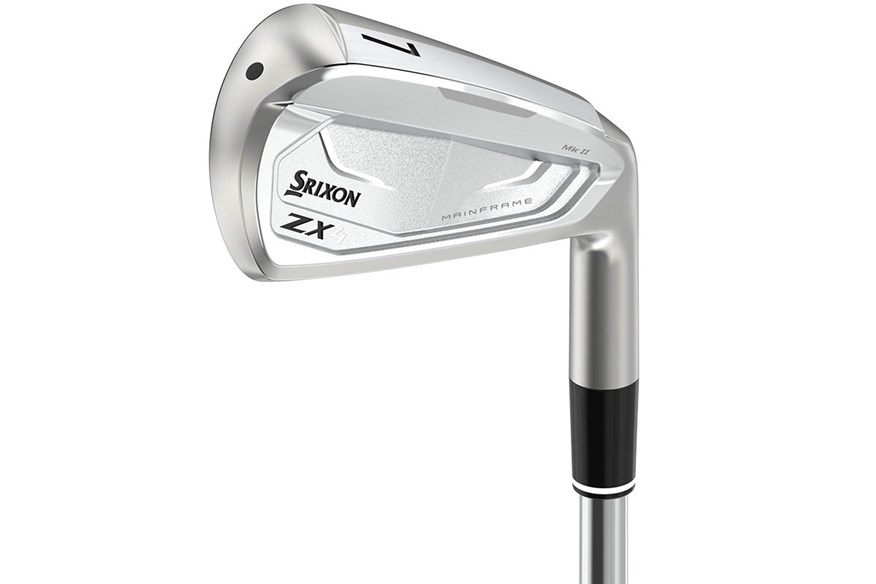

We love the head’s elegant straight lines, which are similar to the brilliant ZX5/ZX7 MkII. Although the ZX4 MkII heads are a little longer and bigger, there’s still a super attractive look at address, thanks to not being overly offset. Srixon says the topline thicknesses across the family are closely linked, which actively encourages golfers to create their own personal combo set of two or more models.
The ZX4 is our joint longest mid-handicap iron of the year, producing the fastest ball speed, plus a top-three performance for protecting both ball speed and carry distance. With the model being fazed out towards the end of 2025 you might find a set for very sensible money.
Read our full Srixon ZX4 MkII irons review.
Pros
- Looks great at address
- Fast ball speeds
- Excellent forgiveness
Cons
- Less offset may harm mid-handicap slicers
| Stock shaft | KBS Tour Lite (s) Diamana ZX (g) |
| 7-Iron loft | 28.5° |
| Forgiveness rating | 3 - 3.5/5 |
| Category | Mid-Handicap Iron |
The most forgiving and playable iron set offered by Titleist.
As golfers most of us want to play clubs we like the look of, especially when we’re often forking out over $1000 for a decent set. And if it’s looks you’re after there are not many better looking or more attractive mid-handicap iron options on the market than the T350. I really like the straight top edge, how there isn’t a ton of hosel offset, and how even though the head's bigger than the Titleist T200 it’s still really attractive and easy on the eye when sat behind the ball.
Our test data shows the T350 almost to a tee follows our test averages, which to many might not scream top performer. But throw in a forged face, a ton of tungsten toe weighting to up MOI, and an array of top fitting options (which many in the category can’t compete with), and this model should at least be on mid-handicappers' shortlist to try.
Personally, I’ve played the model since August 2023 and I really like the sound and feel along with how the slightly weaker lofts than some of the competition help flight shots for maximum playability and not just most speed or distance. To take full advantage of what Titleist has to offer ensure you get properly fitted as the brand prides itself on being custom fit leaders.
Read our full Titleist T350 irons review.
Pros
- Premium finish and quality you'd expect from Titleist.
- Lovely sound and feel.
- Workable lofts.
Cons
- Not a standout performer but does everything well.
| Availability | 4-PW, GW, SW |
| Stock shafts | True Temper AMT Red (s), Mitsubishi Tensei Red AM2 (g) |
| 7-Iron loft | 29° |
| Forgiveness rating | 3-3.5/5 |
| Category | Mid-Handicap Iron |
Designed for incredible feel, increased power, and shot consistency.
In the hands of our test pro the slightly weaker Ai300 compared favorably with the Ai Smoke, I believe many club golfers will appreciate the slightly higher spin (343rpm) and steeper descent angle (0.5°) performance of the Apex, especially so at average speeds. Despite a slight loft difference, there’s very little to choose between the two in terms of ball speed or carry distance numbers, so you’ll be leaving nothing on the table whichever way you proceed.
Hopefully, you’re not sat on the fence between the Game Improver Ai300 and Players’ Distance Apex Ai200. If you are our data spells out you can expect to see a 1.2mph slower ball speed, 432 rpm more spin, and a steeper landing angle performance in exchange for 4 yards less 7-iron carry distance by opting for the Ai200.
If distance is your number one priority the Ai300 should then be your first port of call.
Read our full Callaway Apex Ai300 iron review.
Pros
- Super soft feel and sleek design
- Longer shaft to encourage increased club head speed
- Thicker top line to encourage confidence
Cons
- Slightly higher price point than most game improvement sets
| Availability | 4 - PW & AW |
| Stock shafts | True Temper Dynamic Gold Mid 90 (s) UST Recoil Dart (g) |
| 7-iron loft | 29° |
| Forgiveness rating | 3-3.5/5 |
| Category | Mid-Handicap Iron |
Best Forged Golf Irons: Buying Guide & FAQs
How hard is it to hit forged irons?
Traditional forged irons tended to be classic blades with little to no help in terms of launch, distance, or forgiveness. Many modern forged irons, however, manage to pack in design features that make them a little easier to hit. It’s still the case, though, that the most forgiving and easiest-to-hit irons will be bigger cast models, rather than forged.
Are forged irons less powerful?
If a cast and forged iron of exactly the same design and loft were compared side by side, there would be no power loss thanks to using the forged model. However, as forged irons often target better players, who generally are less concerned about adding extra speed and distance to their iron game forged players’ irons typically have weaker lofts.
Weaker lofts equate to less ball speed and carry distance, so forged players’ irons will usually fly less far than players’ distance and mid-handicap irons, this is purely down to their loft difference, not the material.
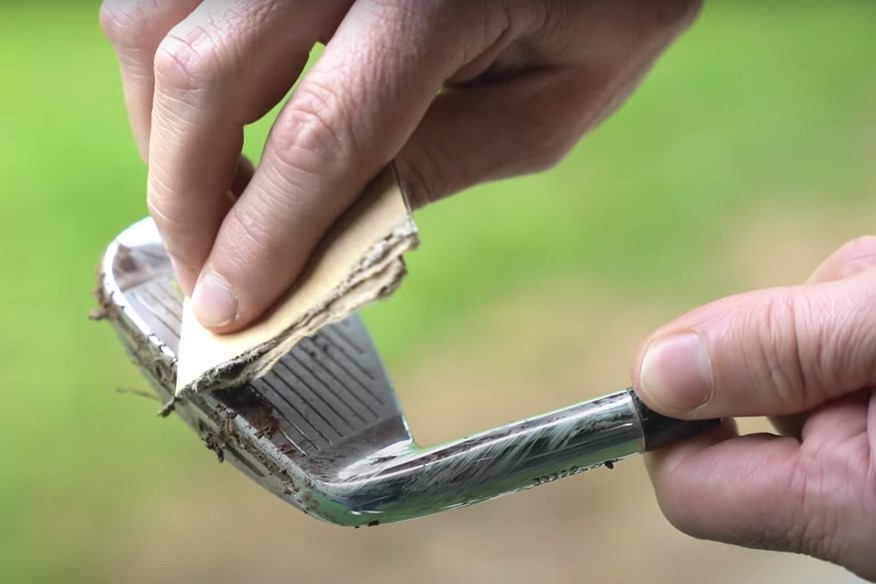
How should I care for a set of forged irons?
As forged irons are often created from steel with a higher carbon content they are more prone to rust than many cast models. If your set gets wet I’d advise taking the time to dry them properly after the round and don’t ever leave them to fester beneath plastic iron protectors or sit in the back of your car.
Taking the time to clean your set (with hot soapy water and a dry cloth) after each round will prolong the life expectancy of your forged irons and help them retain value should you ever want to trade them in against another purchase.
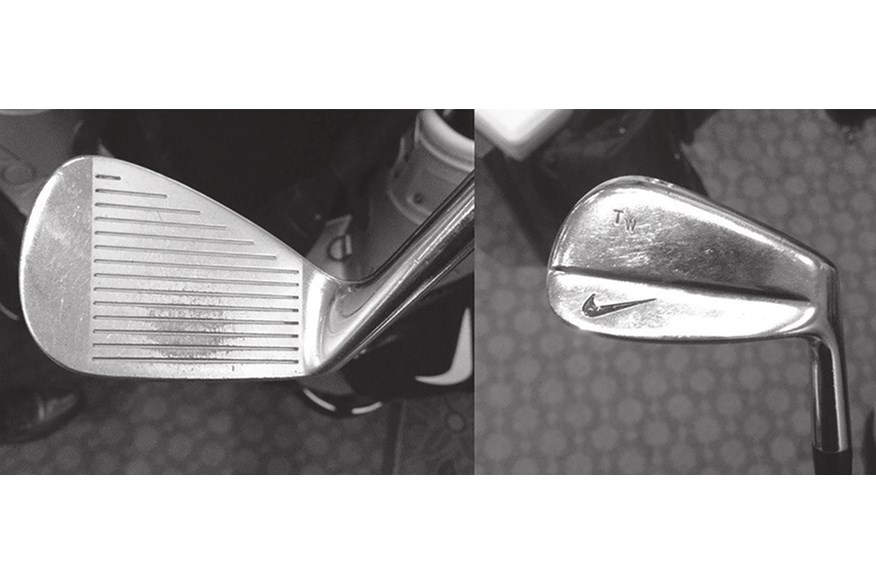
Do forged irons wear more easily?
Most forged irons have a plating coat over their base material to stop them from rusting within a few months of being exposed to the air. If like a tour pro you hit thousands of shots a week it is possible over time to wear spots through the plating in the position you most frequently impact shots.
This isn’t something you really need to worry about if you’re a club golfer, just be aware if you are a serial range goer. Wear spots don’t greatly impact performance, in fact, they’re usually seen as a badge of honor for somebody who practices more than they really should.
Why do so many professionals play forged irons?
Feel, feedback, and sound all play a role in why so many top professionals swear they have to use forged irons, and so too does the shape and smaller size of many forged models. Tour pros are great ball strikers, so it makes perfect sense they’re the people who need the smallest most unforgiving models to hit the same consistent shot shape over and over again.
The bigger heads and wider soles of more cast game improver models would also be more difficult to use at higher skill levels especially when we factor in using them from the tightest of lies and thickest rough.
Join Today’s Golfer for unlimited access to premium content and exclusive rewards!
